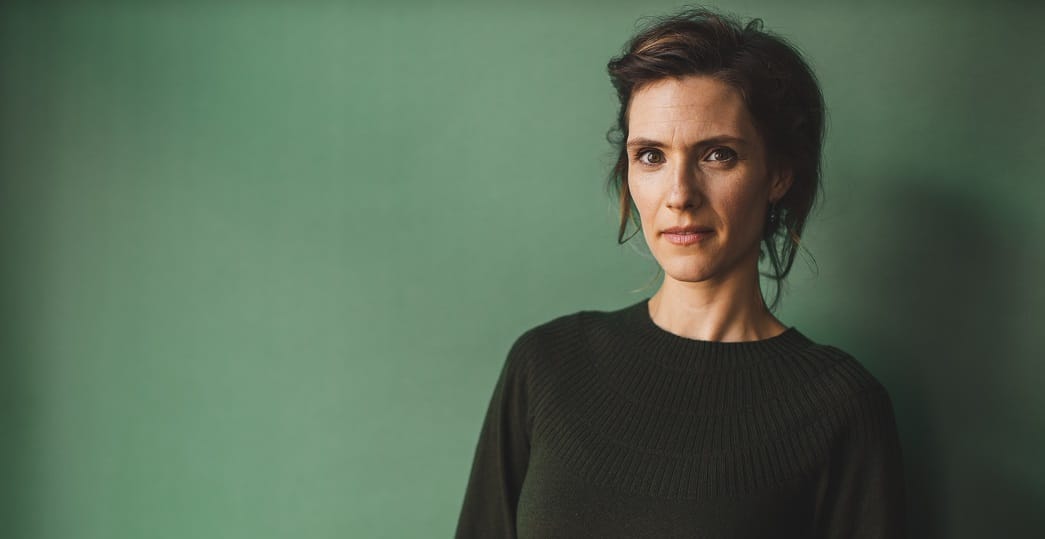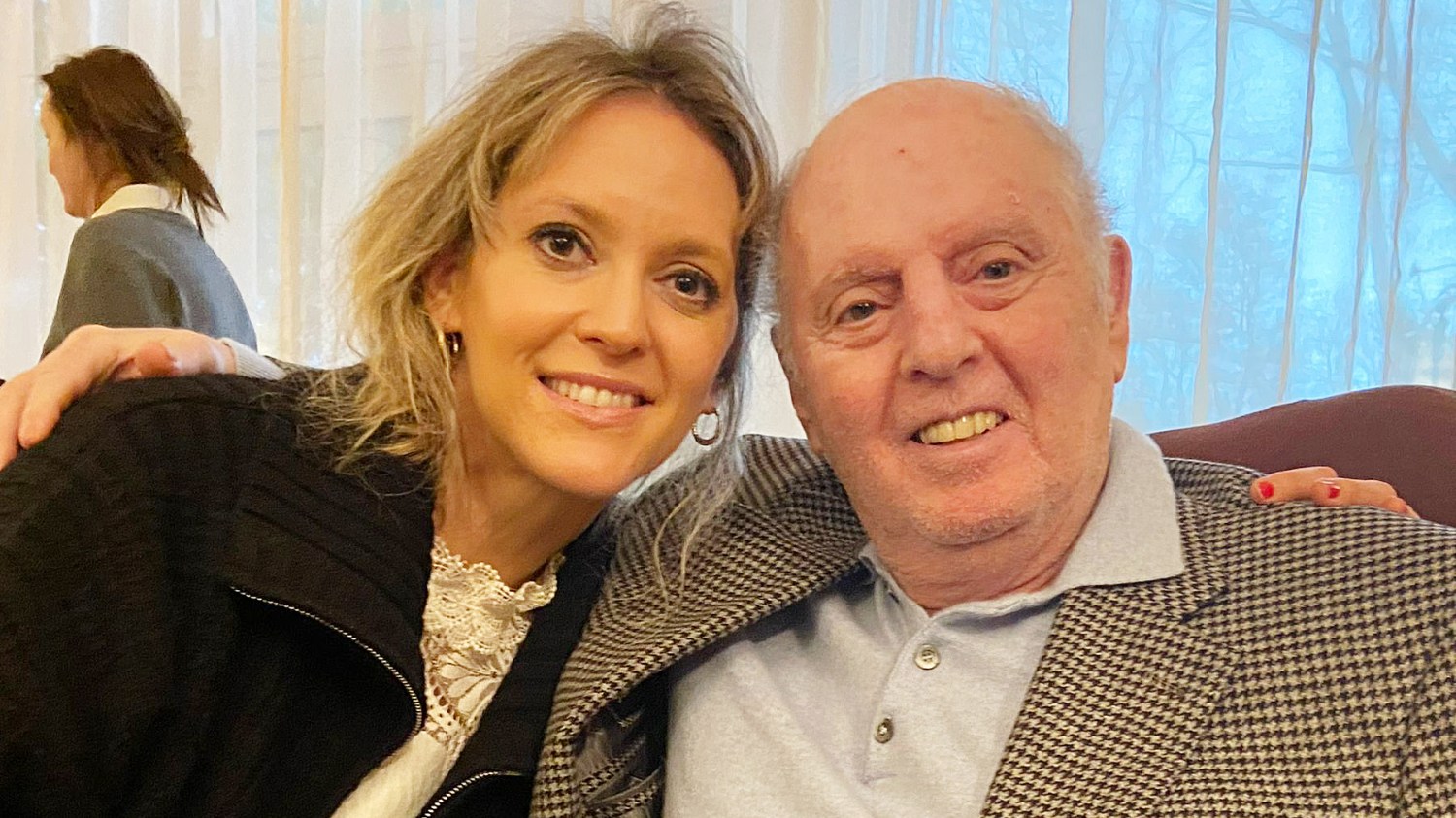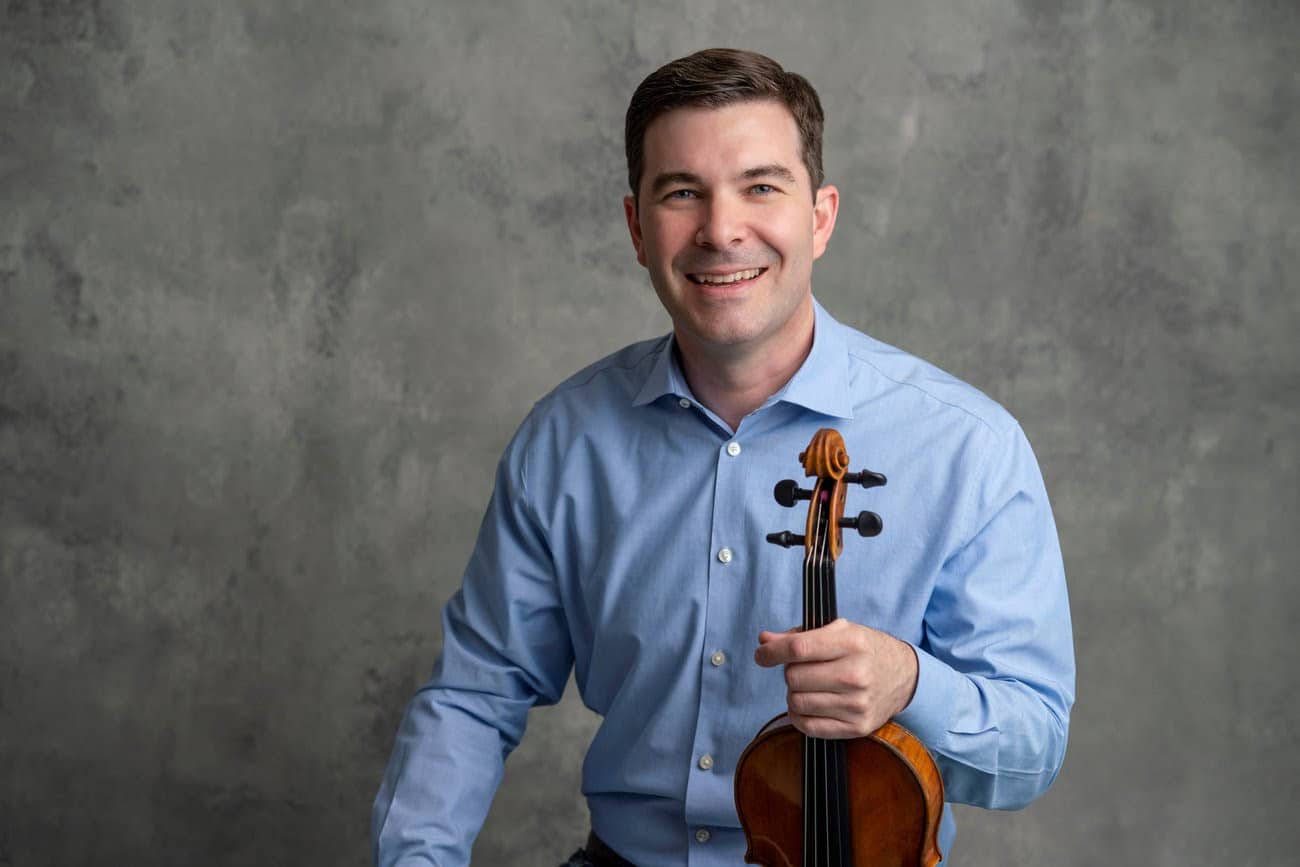A violin recital composed by Artificial Intelligence
NewsThe Boston violinist Daniel Kurganov writes:
What you are hearing is music entirely composed by and played by Artificial Intelligence. My role was minimal, limited to guiding the AI with simple text instructions. This represents a groundbreaking moment advancement in technology—and this is the dumbest these tools will ever be. So, we must ask: are we seeing the end of classical music as we know it, or does this mark a new beginning?






The real question is whether AI could ever create something entirely original, and this excerpt suggests that all it can do, at least for now — and I would suggest for a very long time, unless it move to a brand new paradigm allowing for genuine creativeness, i.e. without needing to be informed by previous inputs — is merely synthetize and replicate what has been done previously, in a manner reminiscent of ChatGPT, which can answer many questions in the blink of an eye, although such answers tend to be rather superficial, the less “straightforward” and the more room for interpretation and leeway such questions allow for. For instance, asking ChatGPT philosophical questions tends to result in extremely simplistic, parrot-like answers which betray a profound lack of genuine philosophical insight, mostly confined to a rehashing of already available information. I think there are two more questions we should actually be asking — what would be the benefit of having AI take over the role of the composer — could it actually produce a new Bach or Beethoven? — and why not then simply replace all live performers with AI, as no human could possibly match the cold technical perfection guaranteed by a machine? (this latter aspect, I think, we can have no doubt about). I very much doubt anyone valuing music as an art form would wish for either, and for this reason, this is neither the end of classical music, nor a new auspicious beginning, but a mere temporary detour, a sensational gimmick feeding our infantile fascination with technology. AI can no more create real art that touches the soul than Facebook might be able to foster substantial, long-lasting friendships and relationships based on reality, as opposed to sheer virtuality.
Entirely correct observations and conclusions.
I also agree, with the proviso that the phrase “merely synthetize and replicate what has been done previously” describes a fair number of flesh and blood composers from the Baroque era to the present.
The better composers use existing material and create something personal with it. And since personality cannot be repeated, it is always original.
Humans can’t create something new without inputs either. I’m not sure there are any more true innovations left, we have gone to the utterly absurd and back. There is merely absorption, mixing, and metamorphosis of existing styles.
Correct.
A trained ear can clearly tell that the playing is put together in a fake way. And to answer your question: no, classical music will not die because of AI. To not teach it in school, to never put it on television or to promote soloists and conductors who don’t know what they are doing but look good on a poster are actual examples of killing it.
And, the vibrato just “kills,” doesn’t it!
The music in that video just sounds very bad. There is no musical logic in it at all, it is a meandering of silly imitations. Even a first-year conservatory student would do better.
Where does this urge come from to destroy great creations of the human mind and replace them by dead technology? For the production of cars and vacuum cleaners one could understand a pragmatic and cost-reduction reason, but for the arts? Apparently when the arts are considered merely another type of pragmatic production, as commodities in a business.
Sorry, but you’d never be able to enter a respectable conservatory playing like this.
I bet if I submitted this, the ‘internet experts’ here would say “Oh what is this random meandering post-romantic music, it makes no sense and a conservatory student could do better than this AI”
https://www.youtube.com/watch?v=1xXwK39aFNI
In reality, not given prior knowledge, a number of world-class artists have thought this was some great Oistrakh student playing and some unknown Franck or Chausson piece. But I guess the ego of these internet experts knows best.
Hurt feelings are understandable, but it really has nothing to do with anybody’s ego, or your dismissal of knowledgeable people commenting here, referring to them sarcastically as “internet experts.” Maybe it is *your* ego, which is taking a hit as demonstrated by this name calling?
What it does have to do with, though, is people’s ears. Those who have listened to classical music and classical performers can tell what this is, in comparison to the real thing.
The worst aspect of this is, you claim this is a “groundbreaking moment advancement in technology” and maybe it is, but to what end?
Is such an advancement in technology truly a musical advancement as well?
Is it necessary for a computer to try to sound like a human performer or a human composer?
Not asking what you like, but what is truly “necessary” – what real life problem does this solve?
This is a disregard for human artistry, which doesn’t need to be replaced or replicated by technology, no matter how advanced it is.
Those like me who are coming down hard on this experiment simply have listened and can tell the difference – regardless of what any other “world class artists” think – and they have respect for what it takes to attain great artistic heights as a musical performer. We love real music and real human beings.
That’s not ego; on the contrary, it is respect for others and respect for real talent and real hard work, which is the opposite of ego.
But does it move people? I hear nothing here that find it earth shattering, groundbreaking, or memorable. You need a human composer and instrumentalists for that.
I believe that the honorable readers of this site have so far missed the point: AI produced an unoriginal, schmaltzy, but LISTENABLE concoction. This is, as pointed out by Mr. Kurganov, only a preliminary first step in a revolutionary development akin to AI winning over the world Go Champion in 2016. And it is poised to throw all the ridiculous, navel-gazing but UNLISTENABLE music produced for decades — which replaced music that appeals to the human senses — into the trash. AI comes to teach humans how to generate human music! Be ready for a long-overdue change that re-establishes music loved by normal people. The academics and avant-garde have so far let us down.
In fact, much new music since WW II was defined by Artificial Intelligence, with the accent on Artificial.
But John, electronic music was for decades generated by crude mechanical algorithms. Now we have the beginnings of complex ordering that tries to mimic human intelligence. That’s a game changer, and time will tell.
If you believe that “music loved by normal people” can only be made by a non-human, your knowledge of music and those who have performed it is woefully wanting.
As for this being “listenable” it took all the nerve I could muster to listen to this short example of meandering, spiritless, structureless, and yes – pointless – so called “music.” The world has so many different types of music, and most of the world loves the Taylor Swifts that exist…why bother the world of classical music with dumbing down?…can’t one type of music remain untouched by those who know the least, who can only imagine bringing Beethoven or John Adams down to the level of The Lion King?
The day this teaches humans how to generate human music is the day I become the ghost of Michael Jackson!
Pastiche… just pastiche:
All of us, we’re all lost….it is a tale Told by an idiot, full of sound and fury, Signifying nothing. All’s well that ends well…
See! I can be AI, too!
If you just want ambient sound that’s vaguely post-romantic, then OK.
But I am drawn to music most fundamentally because of the communication and contact between one human consciousness and another that it offers. The composer and performer are expressing some thing about their subjective experience that transcends language. The audience wants to receive this communication and contact. We engage in this communion because it assuages human loneliness. For me, AI generated auditory wallpaper cannot even begin to meet this need.
Instead of “human loneliness,“ more precisely I would say something like “existential aloneness.“
Music is very intimately human. It’s basic elements of pitch and rhythm are metaphors for breath and heartbeat. It’s temporal dimension is a metaphor for mortality. When a living breathing human is composing music or performing it, they are expressing the experience of embodied human consciousness In a very immediate way. I don’t find that abstract sound patterns generated by other means can do this.
That is entirely true. Hence the problem with things like this, in spite of the nice colours:
https://www.youtube.com/watch?v=KoFfArXdgsc
Totally agree with everything you wrote. I guess I should have prefaced this as essentially a study on how the inner-craft of great violin playing works, and not a presentation of human-like emotion/transcendent music/communication of something deep, which it inherently isn’t.
Artie Fischl will inevitably win the Pulitzer Prize for Music and receive a MacArthur Genius fellowship, the way we’re heading.
It’s interested to read everyone’s perspectives. It was really thrilling to see put this project together, and I’m quite frankly still shocked at moments of extremely high quality, particularly in the violin playing, that it produced. Moments that “check all of the boxes” for top level violin playing and totally suspend disbelief for everyone listening without bias. Of course it’s not totally consistent, and I agree the composition is sort of meandering late-Romanticism. But to give the devil his due:
I personally love the very beginning phrase exchange in the piano / violin. And then it comes back at the end of the 1st movement in a beautiful way. Those moments sound quite original, and not worse than anything Franck or Chausson wrote.
Anyone who knows violin playing has to listen to this, think of Oistrakh and start to compare/contrast where the AI does well and where it falls short, etc. The fact that such an analysis happens means we are in very interesting territory. 5 minutes ago, AI classical music sounded pretty much like garbage. So, judging from the “glimmers” that appear here, it will be very interested to see what happens even next year.
Anyway, thanks again for the engaging conversation!
“Anyone who knows violin playing has to listen to this, think of Oistrakh and start to compare/contrast where the AI does well and where it falls short..”
Oh, yes, Oistrakh! He is rolling over in his grave at the insult! Do you even have ears? And are they connected to an experience of Oistrakh’s poetry?
With all due respect, talk of poetry and connection to an experience is not relevant to what I’m presenting here, Margaret. That comment you quoted was meant for musicians string players and people who understand and think about the craft. High level string players will agree with the sentiment if you ask one…
Instead of comparing AI’s “creations” with Bach and Beethoven, suppose we compare them with mainstream composers of the second rank like Sessions, Ginastera, Zwilich, etc. I think AI would fare very well in this comparison.
It would not fare well. You need to listen to more of these composers’ music, if you think they offer less than this piece of AI garbage. All are extremely well-structured, full of color, and have distinct personality imprints.
It actually is worse than Franck or Chausson, for it has neither structure nor inner logic. I don’t really like these two composers’ music all that much, but it is something AI will never touch and I’d far prefer to listen to even their worst music than this garbage.
As for violin playing of “extremely high quality…Moments that “check all of the boxes” for top level violin playing and totally suspend disbelief for everyone listening without bias” I believe you miss the point.
The idea of “bias” has become frowned upon in recent years, just like that of “expertise” and “knowledge” and “experience” – yes, I listen with bias, and it’s the bias that appreciates vibrato used intelligently (which it isn’t here), tonal shading that actually does create breathtaking moments (nonexistent here), and playing that is an extension of the performer’s character and personality (hard to do without a performer’s character and personality).
You’ll never create Arthur Grumiaux, Franco Gulli, Joseph Silverstein, Sergiu Luca, Pina Carmirelli, Henryk Szeryng, Miriam Fried, Arabella Steinbacher, Josef Suk, Josef Gingold, Schmuel Ashkenasi, James Ehnes, Stanley Ritchie, Ivry Gitlis, Anne-Sophie Mutter, Nadia Salerno-Sonnenberg, Tossy Spivakovsky, Tasmin Little, Renaud Capuçon, or anyone else “guiding the AI with simple text instructions” – humans aren’t “simple” and you can’t get art out of them with “text instructions” – this certainly didn’t “check all of the boxes” for me, and it seems to me that it’s just another example of “I’m tired of working hard myself, so I’ll let a computer do it for me” which may be fine if you’re cleaning your carpets with a roomba, but to make art?
No, I have to disagree with you, it still sounds “pretty much like garbage.”
“…… worse than Franck or Chausson…” seems to imply that these were somehow bad composers. Instead, they are composers of truly great talent, Franck more so than Chausson but also the latter is on a level far, far above anything that any AI program could possibly invent.
I didn’t mean that either of these composers was bad…just that this is worse…and in fact they are quite good enough that to compare this to them is really a far fetch (and disrespectful to them, because they were indeed composers of great skill).
I’m looking at this from a very technical point of view, based on what I understand about how great violin playing works and based on my taste. The ideas around humans being complex emotional beings, economic and ethical implications, implications that somehow I’m trying to get something to do work for me (??), and the value of live concerts have absolutely nothing to do with why I made this and the discussion I am trying to open.
The Franck or Chausson comment was directed at specific moments in this piece, and I stand by my comment. I can find you Enescu compositions that sound exactly like this piece but worse in some respects. So, yes, bias, a host of unexamined assumptions, and a bit of Dunning-Kruger effect from people judging defensively probably after the trauma of seeing AI make a hand with 6 fingers last year. I attempted to post this with no mention of AI, but it simply didn’t get much viewership. I’m not directing this diatribe at you personally, but the general reaction has been tiring but ultimately quite illuminating.
“I’m absolutely not in favor of AI in many instances” is like saying I’m not in favor of the printing press or the internet. It’s not a thing that can be favored or not favored. It’s a revolution that’s going to completely change the world in ways we don’t understand, and it is what it is.
My point is that this AI, even at this stage of infancy, clearly understands how the building blocks of great old-school violin playing work. It understands color changes, nuance, old school vibrato, portamento, rubato, accentuated parlando — all of the basic expressive techniques that we strive to somehow understand and execute like the old masters did. I’m not saying it’s perfect, or that there aren’t some tells and some moments of lower quality, or that it’s some kind of finished artistic personality. Clearly it’s an imitation (although that’s not how AI works). None of those caveats are necessary if one listens from a place of understanding.
I should add, for what its worth, that a handful of world-class musicians I’ve shown this to (a name or two that belong on your list) were totally blown away and agree with my analysis. The difference is I didn’t tell them it was AI first, they’re not curmudgeons who can’t listen with an open mind, and they know intimately what good string playing means and how it works.
Finally, on a lighter note, thank you for your comments on my playing, I truly appreciate it. It’s my lifelong devotion to the art-form that has me amazed at this mirror that is being held up to artists (whether they like it or not) forcing them to consider what their craft really is, what creativity is, how much of it is based in mimicry, and what is it they’re really trying to say. I am not afraid of the truth and I seek it, precisely because I think that the humanity of things will always remain human, inherently.
Peace and best wishes.
I thank you for your response, but as you seek truth, I would urge you to consider your own defensiveness in reaction to the totality of responses here. You didn’t get traction when you posted without the “AI” label, so you added the “AI” part, and now when it’s getting more traction, you don’t like people’s responses…but those responses are honest responses, even if you belittle those responding as being ignorant, defensive, or otherwise…they are “truth” in this instance…and I don’t blame you a bit for not liking the truth about the situation, but it seems true enough to me.
Regarding your understanding of my assertion that “I’m absolutely not in favor of AI in many instances” I respectfully submit that it is not at all like saying one is “not in favor of the printing press or the internet. It’s not a thing that can be favored or not favored.” It actually IS a thing that can be favored or not favored, at least in respect to its use…so, of course I am in favor of the printing press, but I’m not in favor of it being used for one country to publish misinformation to sway another country’s elections, for example. I’m also, generally speaking, in favor of the internet, but I don’t believe it should be used to research information that would necessarily guide the medical treatment of a particular individual’s specific disease.
My assertion that I favor the use of AI in many instances means, to give one example, I like specialized software applications – such as imaging programs that incorporate AI to interpose pixels that allow one to blow up a photo to maybe 4 or 8 times its original size, while improving its overall level of focus. One couldn’t achieve this kind of technical feat before the advent of AI…but this is a technical feat only…not an artistic one…just as I believe your achievement is a technical one, and not an artistic one.
In response to your statement that “My point is that this AI, even at this stage of infancy, clearly understands how the building blocks of great old-school violin playing work. It understands color changes, nuance, old school vibrato, portamento, rubato, accentuated parlando — all of the basic expressive techniques that we strive to somehow understand and execute like the old masters did…None of those caveats are necessary if one listens from a place of understanding.” it seems to me that AI can replicate certain technical aspects of sound to some degree, just as a good audio adjustment program might, but it is a big leap over a deep canyon to think that AI “understands” anything…replication (no matter how poor or how great) doesn’t by definition equal understanding.
I have to admit, as well, that I bristle a bit at your phrase “if one listens from a place of understanding” and your subsequent “I should add, for what its worth, that a handful of world-class musicians I’ve shown this to (a name or two that belong on your list) were totally blown away and agree with my analysis. The difference is I didn’t tell them it was AI first, they’re not curmudgeons who can’t listen with an open mind, and they know intimately what good string playing means and how it works.”
As I earlier admitted, we all have bias, but I think I do have some ability (perhaps not as much as you might like) to listen with an open mind, and perhaps I’m a curmudgeon (but perhaps not). I also freely admit that “world class” artists might agree with your findings…but that doesn’t make either your opinion or theirs objectively true…to me that’s more like a music critic’s review, which more often than not only tells me one thing, and that is whether that one critic liked it.
Your assumption, also, that I don’t know what good string playing means and how it works is just that…an assumption…it’s quite possible, probable even, that others commenting here DO know what good string playing is. In my own case, while I don’t claim to be “world class” or “know intimately” about string playing the way some might, I did study cello from an early age and spent 8 years obtaining multiple performance degrees from two premiere American conservatories. I don’t make my living playing anymore, as I’m retired, but I’ve learned from some of the very best teachers and chamber music coaches available in my own time (more old school than those of today), I began collecting LPs as a young teenager and at one point had many hundreds of outstanding recordings of great string players of the past (I now have mostly CDs, about 1500 of them)…and I’ve attended thousands of concerts through more than five decades, hearing string players like Atar Arad, Fortunato Arico, Edwin Barker, Joshua Bell, Paul Doktor, Rostislav Dubinsky, Jules Eskin, Eugene Fodor, Miriam Fried, Josef Gingold, Sol Greitzer, Franco Gulli, Matt Haimovitz, Lynn Harrell, Nobuko Imai, Ida Kavafian, Leonidas Kavakos, Sergiu Luca, Yehudi Menuhin, Schlomo Mintz, Lorne Monroe, Siegfried Palm, Leslie Parnas, Ithzak Perlman, Stanley Ritchie, Leonard Rose, Marcy Rosen, Mstislav Rostropovich, Nadia Salerno-Sonnenberg, Jaap Schroeder, Gil Shaham, Fred Sherry, Joseph Silverstein, David Soyer, Janos Starker, Tsuyoshi Tsutsumi, Peter Wiley, Zvi Zeitlin, and Pinchas Zukerman, among many others, and groups including the Alexander, American, Arditti, Borromeo, Concord, Emerson, Jasper, Jupiter, LaSalle, Lindsay, Melos, Tokyo, and Vermeer Quartets, the Beaux Arts Trio, and larger ensembles and string groups including Boston Baroque, Boston Symphony Chamber Players, Chamber Music Society of Lincoln Center, Czech Nonet, and the New York Chamber Symphony.
As I said, I enjoy your own playing and wish you well, but I don’t think – if you’re really after the truth – that you’ll find it by dismissing anybody who disagrees with you as an “internet expert” who doesn’t listen “from a place of understanding” and who doesn’t “know intimately what good string playing means” because they are not “world class.”
Eh…..”musical” sound pablum.
The real question is, which is worse – artificial technology or natural stupidity? This is a solution in search of a problem, so perhaps we are witnessing both here.
Mr. Kurganov, I’ve been pretty hard on your experiment, so I wanted to try to “be fair” and understand a bit about where you are coming from, as it were.
Understanding of this escapes me, but I have listened to a number of your many recordings on YouTube, and I like your playing. You’ve got a very fine sense of momentum and timing which I’ve found to be in lesser amounts in many violinists. Tone quality is clean and focused, warm but not over the top (which I like).
Technically you’ve got some real chops, and I applaud you; that’s not easy. Even better, I never get the feeling that your playing is making an effort to showcase that technique, but (as I think it should be) your technique successfully serves your musicality.
You are a great example of why an experiment of this type is so damaging and unnecessary. What AI has so far created, and in my view will ever be able to create, will never approach the beauty your playing brings into the world with each performance. That beauty, I think, is enough. No advancement, especially in the realm of technology, can beat what you and other fine musicians already provide to your audiences.
I’m absolutely not in favor of AI in many instances (although in some technical aspects of software it is mighty helpful, and I appreciate that).
But I commend you on achieving what so many performers aim at and miss. For my money, that’s enough and that’s beautiful.
Perhaps it would be so disjointed and mediocre if it listened to a lot of Mozart?